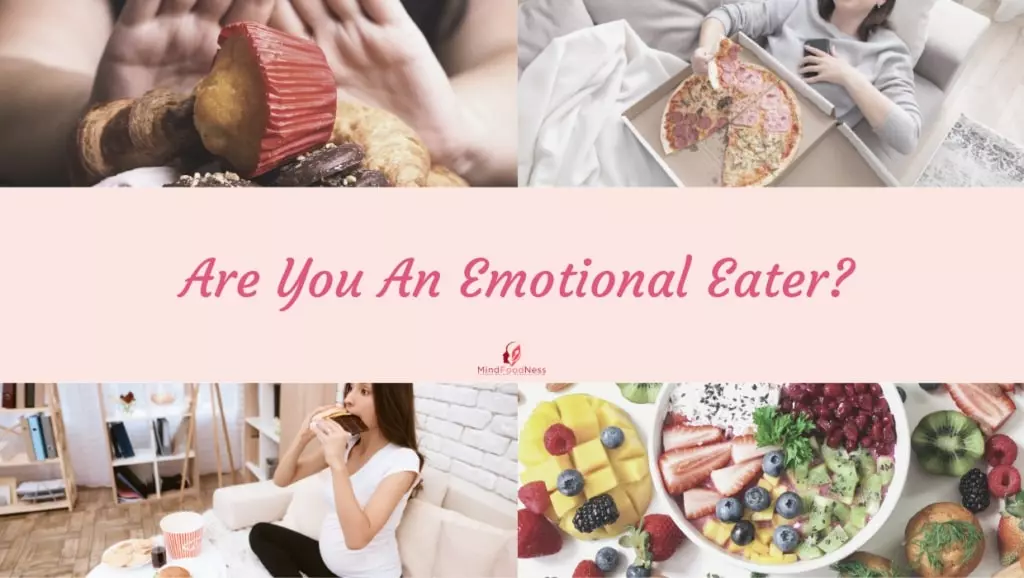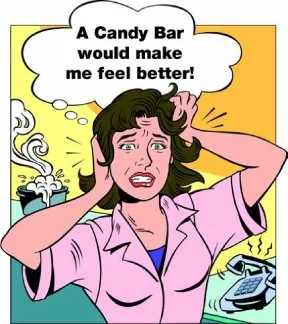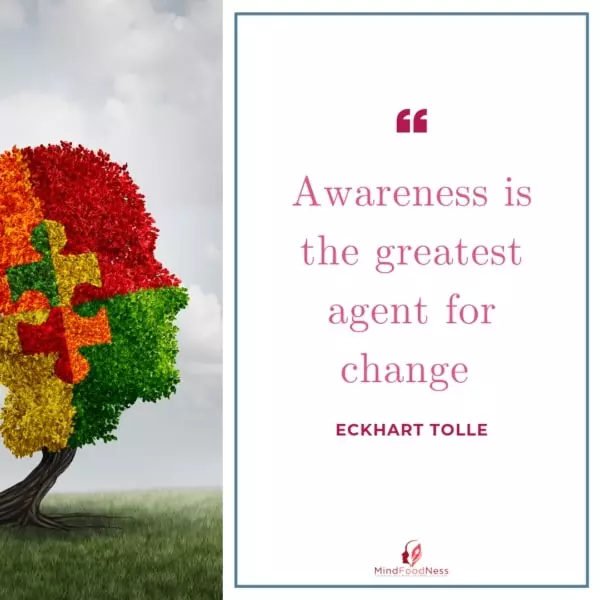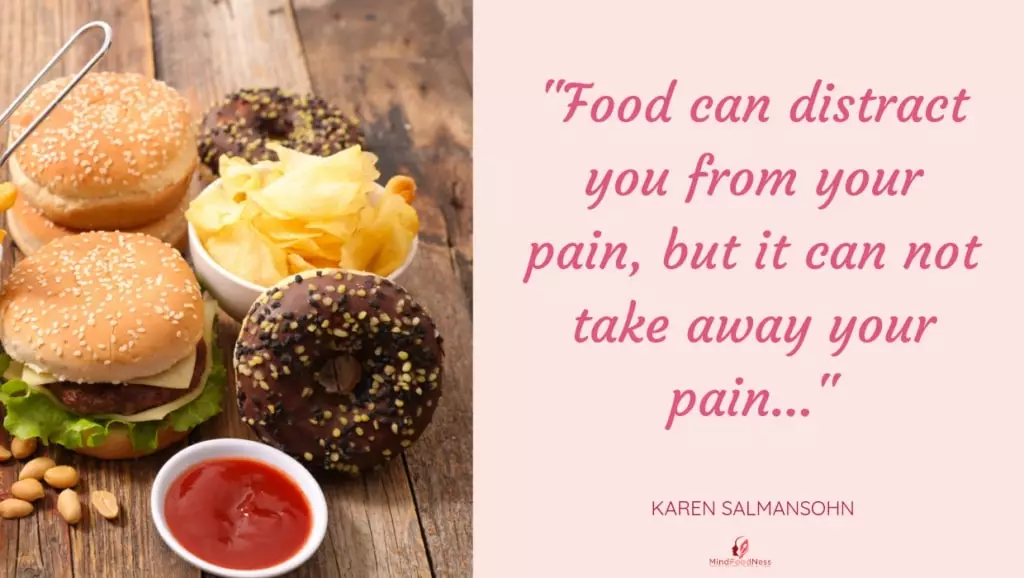Do you eat in response to hunger – or feelings? The truth is, we ALL eat for emotional reasons at times. Think about a Birthday Cake – we eat it to celebrate our birthday. By the time it’s cake time, we are usually not really hungry anymore, but we choose to have a piece because we want to acknowledge our own or someone else birthday. That’s eating for rather an emotional purpose instead of physical hunger.
Emotional eating can create an issue when it becomes our main coping mechanisms to deal with uncomfortable feelings. When we repeat the same behaviour over and over again, it becomes a mindless habit. This is when it can be hard to break old habits and will require identifying current (not useful) habits, new and desired habits and a plan to create new habits that last.
If you are not sure if you are en emotional eater, keep reading to find it out. There are nuances in how it might show up and manifest. First, we need to create awareness. We can’t change what we are not aware of. But once we do detect it, we are empowered with awareness to make changes.

What is Emotional Eating?
Emotional eating is when we eat in response to emotions, instead of physical hunger. It has been suggested that 75% of overeating is caused by emotions. Eating when we are not hungry is usually triggered by an uncomfortable emotional state. So, eating when we feel bored, sad or stressed provides short-lived relief from facing the emotion that we don’t like. Essentially, it serves as a distraction. At that moment, we eat because we want to change how we feel, not to nourish our body or give it energy to sustain during the day.

I hear a lot of my clients saying that they need to know WHY they eat in a certain way so they can make lasting and positive changes. Overcoming eating challenges requires our awareness first, and then knowing why we do what we do. Once we know what needs we are currently trying to meet with food, we can find more helpful and constructive strategies.
So, how can you differentiate if you are eating for emotional reasons or due to physical hunger?
Here are 7 Ways to Spot Emotional Eating
1) Hunger comes on abruptly. This can also be blood sugar related, but normally hunger comes on slowly and we can usually wait to eat. You will probably eat very fast without really tasting that food. Most people experience “numbness” at that moment.
2) You crave a particular food, usually sugar-rich or fatty foods. Most likely we have eaten that food before and know how it will make us feel. We use this strategy to control our feelings when everything else feels out of control. At that moment, we have the need for certainty in very uncertain moments.

3) The cravings for food came after an emotional event which led to uncomfortable feelings like anger, stress, sadness frustration, etc. At this moment we eat food that we know gives us comfort or distracts us from our feelings. There are some powerful strategies to stop feeding your feelings to break the vicious cycle of overeating, feeling shame and guilt.
4) You feel guilty after you ate. Feeling guilty or ashamed after eating can be an indication for emotionally charged eating, however, these feelings can also be an indication of a disordered relationship with food.

5) After you eat you are unsure how it tasted or how much you ate. In moments of stress, we go on autopilot and don’t notice what, how much and even what we eat. Two hormones: adrenalin and cortisol are responsible for that. Our body goes into a fight and flight mode and is not able to make rational decisions. That’s why it feels like we are in trance and relying on will-power will never be possible at this moment.
6) You over-eat to the point of being uncomfortable and continue to eat despite being full. This usually means you were unable to recognise fullness cues. If this happens, just wait until you are hungry again. In the meantime, go for a walk, add some gentle movement and eat a light and nourishing meal once you experience hunger again.
7) Nothing seems to satisfy you. When we are physically hungry, we can recognise hunger and satiety cues. We can eat and feel satisfied. However, when eating emotionally, no matter what we eat, it doesn’t seem to hit the spot. In this case, no matter what we eat, we won’t feel satisfied because we are not addressing the actual need. No amount of food will satisfy an emotional need.
It is not only overeating that we use to mask emotions or distract ourselves. If it is not food, we might excessively drink alcohol, scroll on our phone, isolate ourselves, disrupt relationships or other such behaviours. For most of us, we need to find better ways to deal with perceived negative emotional states. The key is to not relinquish or become scared by these uncomfortable emotions.
Empowerment
It is empowering to be able to recognise when we might be emotionally eating. Usually, though, we realise it’s happened after the fact. That is after we eat too many pieces of cake and we then feel sick, shame and guilt. When we do recognise emotional eating patterns we can then trace back to this root cause and deal with this core catalyst. YES!
This empowering list above will help you develop awareness about when to ‘check-in’ with yourself and become curious about what might really be going on. Combine this knowledge with mindfulness strategies and you will begin to develop self-awareness around emotional eating and then be able to interrupt the process before you even start feeding your feelings.
Next steps
Once you recognise that you are eating for emotional reasons, you need to address the root cause of the problem. Stress, boredom, sadness, loneliness can be some of the reasons for emotional eating. However, there are more and need to be addressed individually. It can also be a learned behvaiour from your childhood, lack of emotional management, or even the way your parents doubt with stress.
With the right approach, you can overcome emotional eating and can feel free from food fear and food obsession.
If you would like to know more about this topic, here are my suggestions for further reading:
Gain Control Over Emotional Eating By Trying These Tools
What Your Food Cravings Mean – Tip: They Might Not Be Cravings For Food




